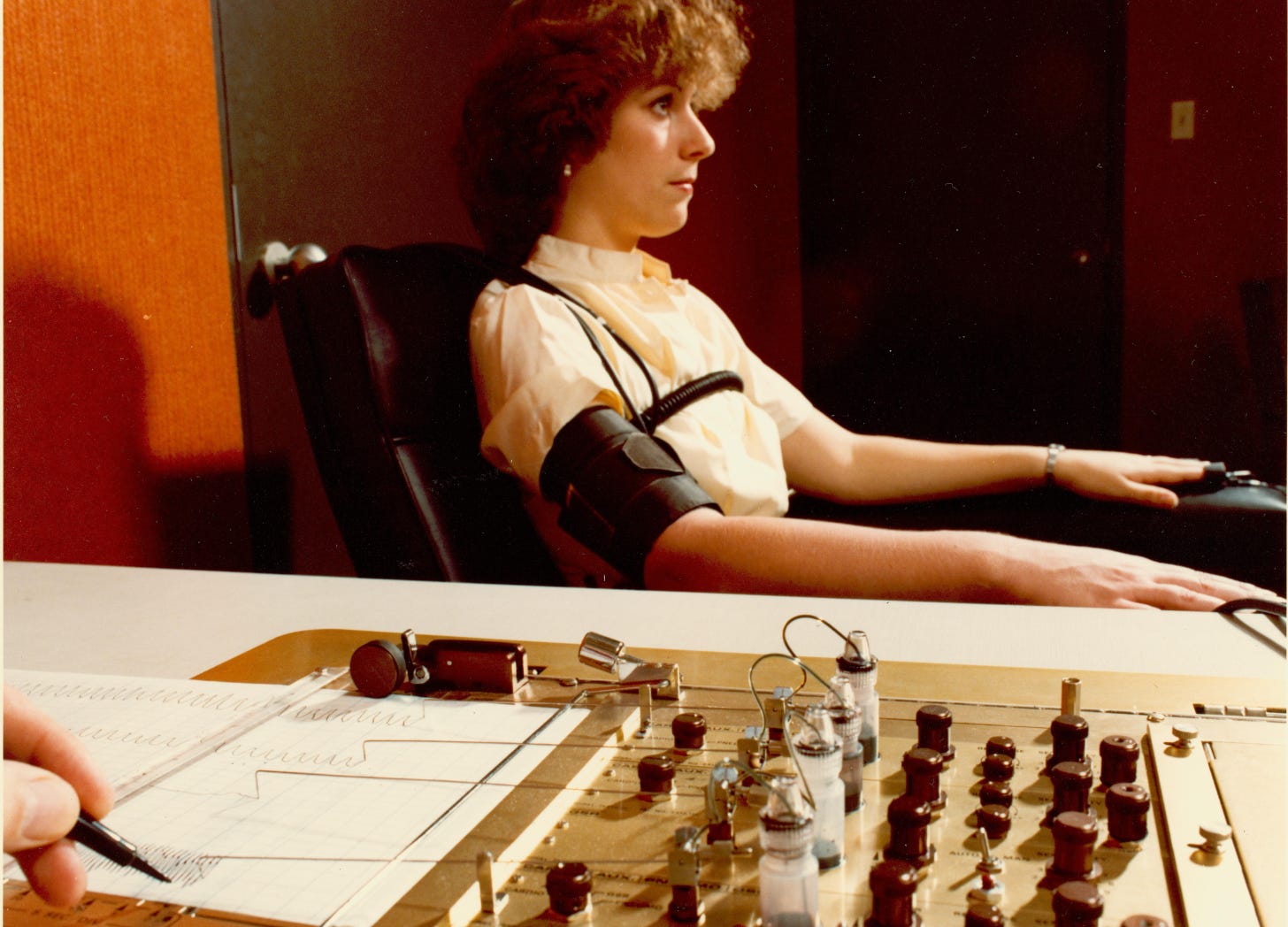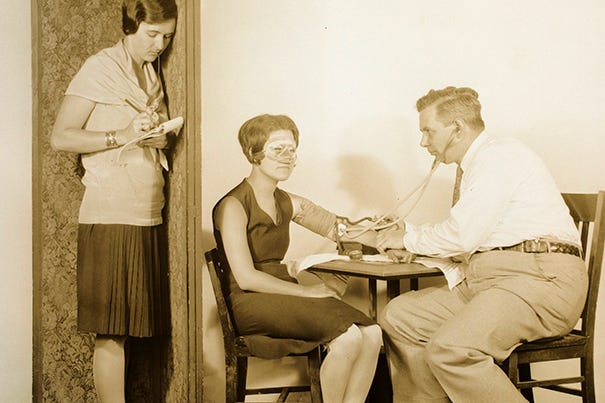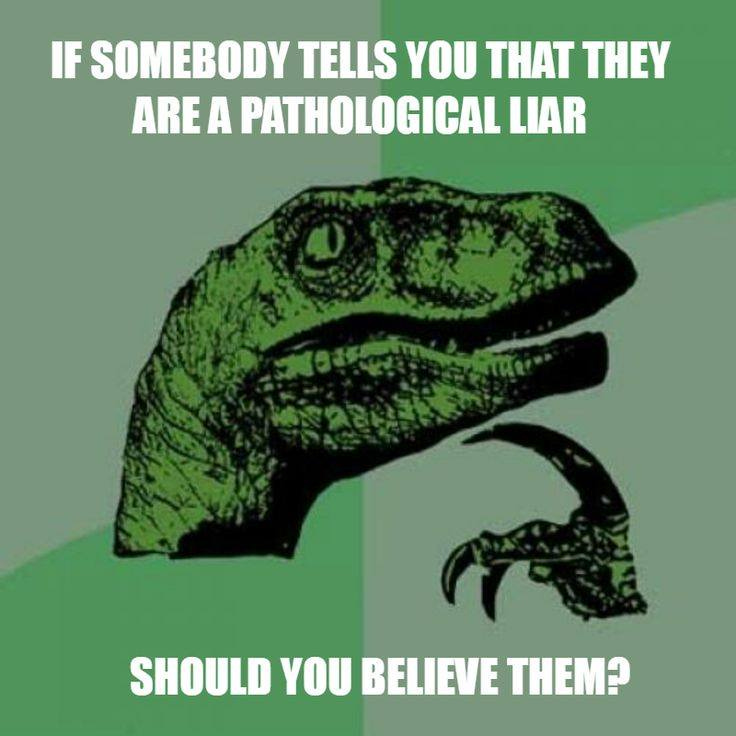The Truth About The Lie Detector Test
The lie detector test (or polygraph, to give it its official name) is a fascinating topic. A staple of reality TV shows and crime dramas, it's more than likely that you already have a good idea of what a polygraph is. But did you know that the term "lie detector" is actually a misnomer? A polygraph test simply measures a person's physiological responses when answering questions—most typically, blood pressure, heart rate, sweating (galvanic skin response), and respiration (breathing rate). This is done to look for signs of autonomic arousal, from which deception can be inferred.
Surely one of the most pernicious misnomers in psychology, the term 'lie detector test' is often used synonymously with the storied polygraph test. This test is misnamed: it is an arousal detector, not a lie detector because it measures non-specific psychophysiological arousal rather than the fear of detection per se. (Scott Lilienfeld, Ph.D.)
The History of The Lie Detector
Investigating the link between physiology and deception has a long history within psychology. In 1915, William Moulton Marston began to study the physiological symptoms of deception during his time as a graduate student at Harvard University; as a result, Marston would go on to develop the first systolic blood pressure deception ('lie detector') test.
This wonderful (pun intended) image from the papers of William Moulton Marston, housed at the Schlesinger Library, shows Marston conducting one of his many experiments on blood pressure and deception.
The person in the photograph taking notes; sporting a distinctive bracelet which looks like it could be used to deflect bullets, is Olive Byrne, the inspiration behind Wonder Woman, the superhero character created by William Moulton Marston under the pseudonym Charles Moulton.
The fact that it was a psychologist who created, wrote and produced the Wonder Woman comic strip is something all psychology students should know! Marston’s work on lie detection is the reason why Wonder Woman has a Lasso of Truth! How cool is that?
Can A Polygraph Really Detect Lies?
The scientific evidence would suggest not. The American Psychological Association notes that:
Most psychologists and other scientists agree that there is little basis for the validity of polygraph tests and that the most practical advice is to remain skeptical about any conclusion wrung from a polygraph.
In 2002, a committee commissioned by the National Academy of Sciences to review and report on the scientific evidence on the polygraph, stated that:
Almost a century of research in scientific psychology and physiology provides little basis for the expectation that a polygraph test could have extremely high accuracy. Although psychological states often associated with deception (e.g., fear of being judged deceptive) do tend to affect the physiological responses that the polygraph measures, these same states can arise in the absence of deception.
Teaching Ideas
If you teach psychology, the ‘lie detector test’ is a great topic to cover with your students. Here are some questions you could introduce and explore as part of a class discussion.
What are the most likely reasons for a false-positive result i.e. when a polygraph labels an honest individual as dishonest?
In what other ways is it believed that we can identify the deceitful e.g. reading body language? How valid are these alternative approaches to lie detection?
What do you think is the most reliable or effective method for determining if someone is lying? Is there a scientific basis for this method?
What ethical concerns arise when using polygraphs or other methods of lie detection in legal settings? Should such methods be admissible in court?
These questions are designed to encourage students to think critically about the science and ethics of lie detection.
Just for Fun
For more great psychology memes, visit: www.all-about-psychology.com/10-memes-psychology-students-will-love.html
Stay in the know! The All About Psychology newsletter is your go-to source for all things psychology. Subscribe today and instantly receive my bestselling Psychology Student Guide right in your inbox—don’t miss out!
Upgrade to a paid subscription and also get the eBook version of my latest book Psychology Q & A: Great Answers to Fascinating Psychology Questions, as well as regular psychology book giveaways and other exclusive benefits.






Thanks for that insight. It does make you wonder how US law enforcement get away with placing so much inferred guilt on anyone declining to take or failing the virtually worthless polygraph test…
This is an entertaining and important article. We were unaware of the connection to Wonder Woman - which is really wonderful. You point out key questions that we think criminal justice also needs to consider as these tools are being presented and used in courts (the same for fMRI and other newer technologies). Lots to think about .